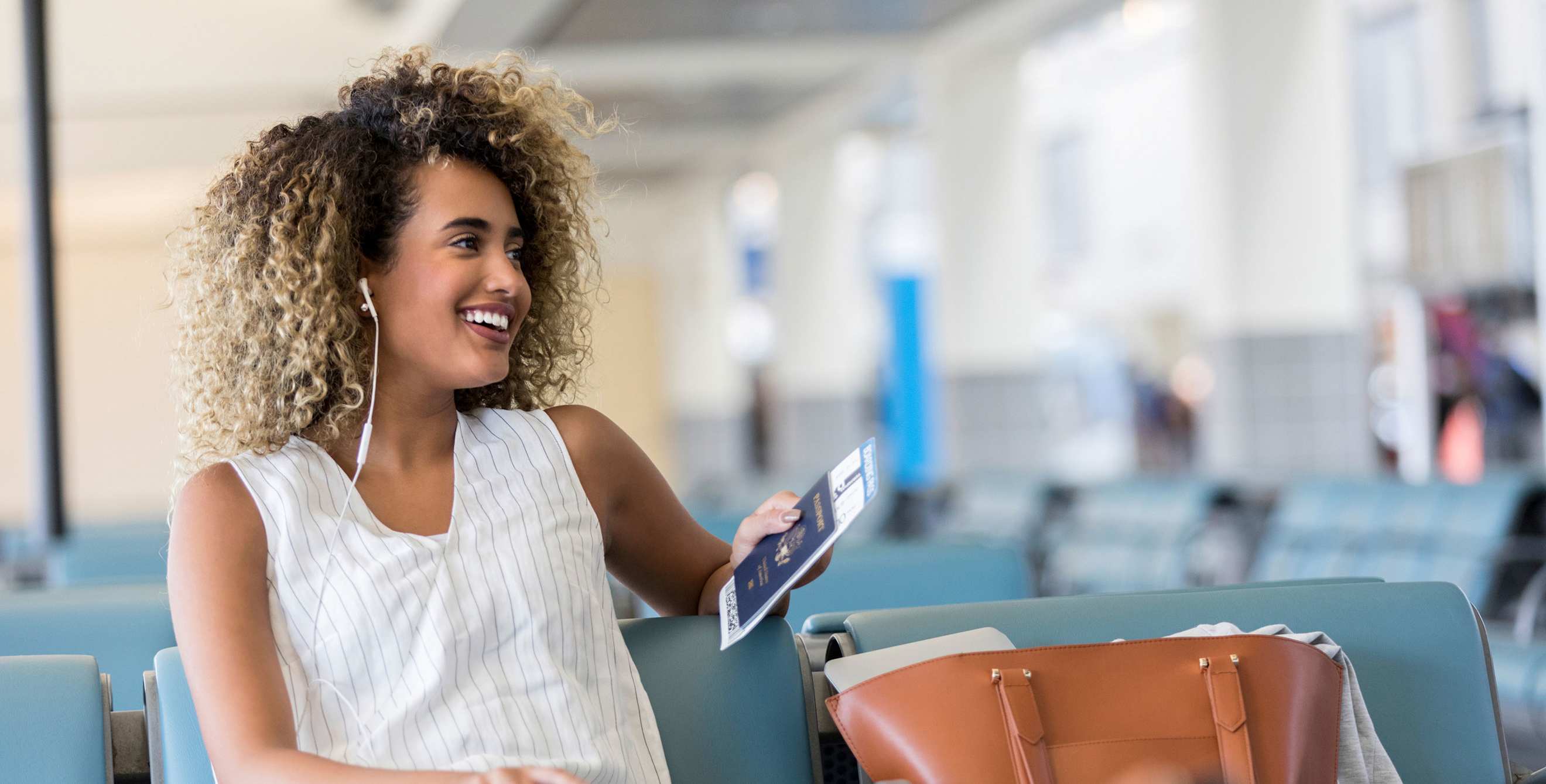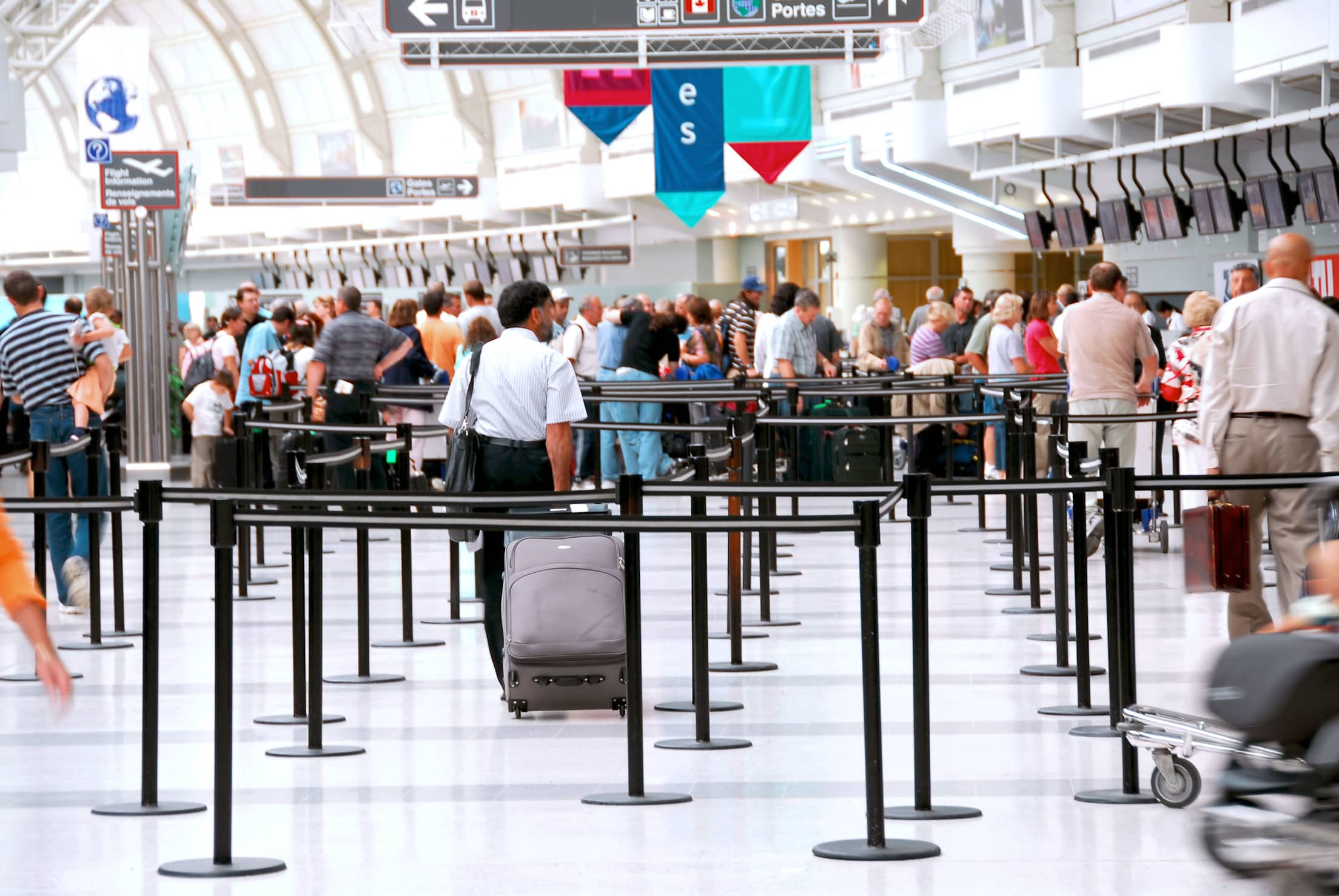
8 Tips to Avoid Fraud and Scams While Traveling
Watch out for these common traveler scams.

The internet has made it easy for travelers to book flights and hotels, obtain visas, and secure reservations for hot restaurants and tourist attractions online. Some airlines, such as Frontier, no longer provide customer service by phone, while others charge a fee to book with a live agent.
But the internet has also opened new routes for con artists to steal travelers’ money—and sometimes their identities—especially when someone’s in a hurry, jet lagged, or in a foreign country.
To prevent your dream vacation from turning into a nightmare, here are some common travel scams and ways to avoid them.
Keep a sharp eye out for search scams.
The most common travel scams reported to the AARP Fraud Watch Network “started with a mis-search online,” says Amy Nofziger, AARP’s director of fraud victim support. Scammers can create a fake website that looks like a legitimate company and either manipulate search results or pay to have theirs appear at the top.
“We are conditioned to take the first return,” Nofziger says. Many people encounter scammers by searching for terms such as “cheap rental cars.”
To avoid this ruse, enter the company’s name, skip over the sponsored results, and go directly to its website. Then check the URL to make sure it’s actually the right company. For example, Southwest Airlines is at southwest.com, not something like travelsouthwest.com.

Make sure customer service representatives are legitimate.
Say you’re at the airport dealing with a canceled flight, you’re tired, you’re stressed, and so rather than wait in a huge line, you decide to call the airline to rebook.
You go online to find the phone number—some legit companies deliberately make them hard to find—and end up with a fake customer service agent who wants your credit card information or an alternative payment form. Or maybe you reach the real airline, but the wait time is approximately one hour, so you search for a “back-door number,” and bam, it’s a scam!
To verify a phone number, look at the number on your frequent flier card (if you have one) or your flight or hotel confirmation, or plug it into a “reverse phone number lookup” site.
Only apply for PreCheck and travel visas through government websites.
Don’t be a victim of look-alike websites claiming to help you enroll in the U.S. Transportation Security Administration (TSA) PreCheck or U.S. Customs and Border Protection's Global Entry program. These programs help speed you through security and customs at U.S. airports, but require a lot of personal information that is catnip to identity thieves. To apply for these programs, always go to the U.S. government’s website.
Likewise, if you need a visa to visit a foreign country, get it from the foreign government’s website, not from an official-looking third-party website that will (at best) charge unnecessary fees or (at worst) steal your money and your identity. To find visa requirements for specific countries and links to their websites, go to travel.state.gov.
Guard personal information against phishing scams.
In 2023, some travelers who had made hotel reservations through the well-known website Booking.com reportedly got emails from the hotel saying their payment had not gone through and they needed to click on a link to confirm their payment information within hours or lose their reservation. Unlike other “phishing scams,” the emails were convincing, because they came from a Booking.com email and showed up in their Booking.com mobile app. But they were fraudulent.
Some hotels claimed that Booking.com had been hacked, which the company denied. In an email, Booking.com reminded users that “no legitimate transaction will ever require a customer to provide their credit card details by phone, email, or text message (including WhatsApp).”
Don't believe “free” vacation scams.
Perhaps you’ve received a phone call, email, or postcard saying you’ve won a free or ridiculously cheap vacation or cruise. “Sometimes they mimic well-known companies. A lot of times there is pressure to act in the next 24 hours to accept this vacation,” says Melanie McGovern, spokesperson for the International Association of Better Business Bureaus.
Ask yourself: Did you enter a contest? If not, it’s likely an outright scam or a vacation riddled with hidden fees. If the offer seems to come from a legitimate company, contact that company directly.
Use a VPN to avoid Wi-Fi scams.
Never use an unsecured public Wi-Fi network to conduct financial transactions, McGovern says. Use cellular data or a virtual private network (VPN), or else wait until you can find a secured Wi-Fi network. You can connect a laptop or tablet to your mobile phone’s cellular network by using the “hotspot” feature on your phone.

Pay with a credit card.
“Whenever possible, use a credit card. That’s the gold standard in terms of fraud protections and dispute resolution,” says Ted Rossman, a senior industry analyst at Bankrate.com.
If a company asks you to pay with a gift card, prepaid card, or payment app such as PayPal, Venmo, or Zelle, “that could be a red flag,” he added. American Airlines wouldn’t ask for these, but something like a local tour company might. That’s where you could potentially be at risk.
These alternative payment types don’t have the same legal protections for unauthorized or unfulfilled purchases that apply to consumer credit cards. Debit cards—and some prepaid cards, if you register them—have similar protections, but they’re somewhat less robust.
Zelle even warns on its website that it “does not offer purchase protection. If you don’t know a person or aren’t sure you’ll get what you paid for, using your credit card may be a better payment option.”
If you do see an unauthorized or fraudulent charge, contact the card issuer immediately to protect your rights.
Don’t post photos of your trip on social media.
Letting people know you’re away puts your home at risk of a robbery and your family at risk of the “grandparents scam,” Nofziger says. This happens when seniors get a call from someone impersonating a grandchild, saying they’ve been in an accident or arrested in a city where the grandchild actually may be, and they need money fast. “Don’t tell mom or dad,” the scammer may plead, handing the phone to a “lawyer” or “cop” demanding immediate payment.